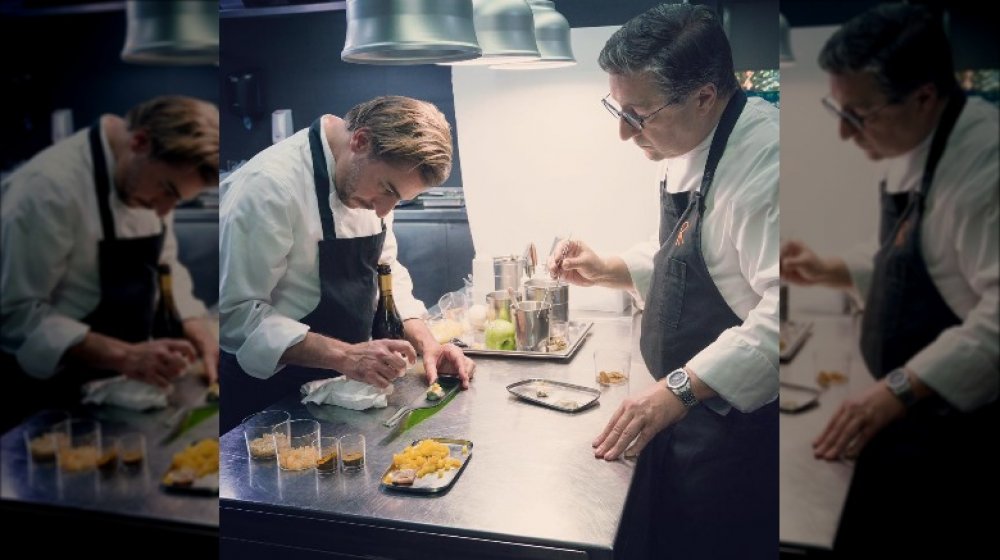The Untold Truth Of Netflix's Chef's Table
IMDb describes Chef's Table as a television series that explores the lives, passions, and inspirations of internationally renowned chefs. Currently, the show has six seasons which focus on one chef per episode, allowing the viewer to dive deep into each chef's personal history and motivations. In its review, Decider calls the program a groundbreaking series and praises the cinematography and storytelling that allows viewers to get to know the world of each chef, following them on their personal journey to self-discovery through their craft.
Eater compiled a guide to all 34 episodes of the show, which includes two specially focused seasons — one that exclusively covers pastry chefs and another that is only chefs from France which are not included in the numbered seasons. They state that the show is available to stream on Netflix and that it offers a glimpse into the kitchens of some of the world's most exclusive (and expensive) fine dining restaurants. This aspect appeals to a voyeuristic impulse in many people who would otherwise be unable to access these spaces due to cost and travel limitations.
There have been some criticisms of the show
Initially, Chef's Table was criticized by some for its lack of diversity, as reported on by Forbes. The program attempted to rectify this in its fifth and sixth seasons by including chefs from more varied backgrounds, specifically including more women and minorities. Forbes states that they feel the show took the criticism well, and that Chef's Table did not shy away from the realities and prejudices these chefs face both in their professions as well as in their daily lives.
Another critique that some have levied at the show, including well-respected restaurant critic for The Guardian Jay Raynor, is that it focuses too heavily on the myth-making and dramatization of the chef as a celebrity. Raynor highlights these unbalanced priorities in one scene which features chef Dan Barber of critically-acclaimed restaurant Blue Hill in New York being brought to tears after he is unable to see his daughter due to time spent sourcing ingredients for the restaurant. Raynor criticizes the scene, arguing that cooking food for people willing to spend almost $200 plus tax and tip for one meal per person is not as crucial to society as they are making it out to be.

